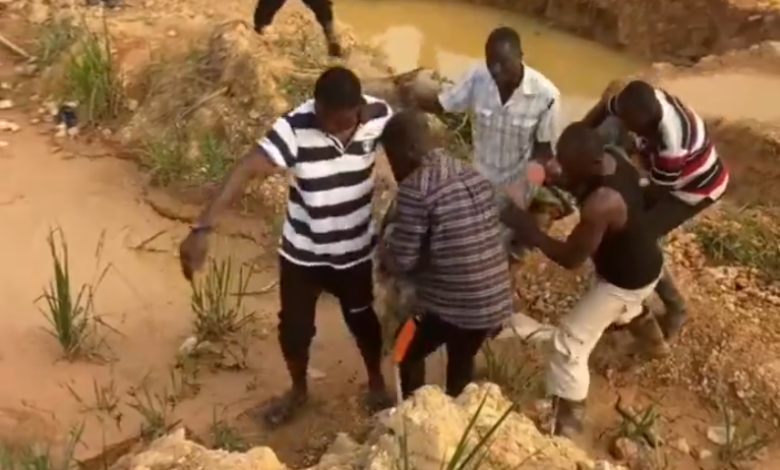22 Drown in galamsey pits
22 Drown in galamsey pits in Central Region — NADMO - Reclamation initiative launched

Twenty-two people have drowned in abandoned illegal mining (galamsey) pits in the Central Region within the past seven months, the Regional Directorate of the National Disaster Management Organisation (NADMO) has disclosed.
The Regional Director of NADMO, Kwesi Dawood Mensah, who made this known at a media briefing in Dunkwa-on-Offin last Wednesday, described the situation as both “alarming and heartbreaking,” stating that many of the victims were school children.
He cautioned that the actual number of casualties could be higher, as some incidents may have gone unreported.
Mr Mensah was speaking at the launch of a land reclamation and tree-planting campaign spearheaded by NADMO in collaboration with Metropolitan, Municipal and District Assemblies (MMDAs), traditional leaders, and security agencies.
The initiative seeks to mitigate the environmental destruction and human risks created by illegal mining.
The Central Regional Director of NADMO explained that large tracts of arable land in the region had been devastated by galamsey, leaving behind uncovered pits that filled with rainwater and became “death traps” in affected communities.
Beneficiary districts
The reclamation programme, he said, would target districts including Assin North, Assin Central, Upper Denkyira East and West, Twifo Atti-Morkwa, Twifo Hemang Lower Denkyira, and Komenda-Edina-Eguafo-Abrem.
To support the effort, the Central Regional Minister, Ekow Panyin Eduamoah Okyere, has deployed heavy equipment to complement the machinery of the various MMDAs to undertake the reclamation exercise.
Mr Mensah further indicated that free seedlings of economic trees such as cocoa, rubber and oil palm would be distributed to affected communities for planting on reclaimed lands, with the aim of restoring livelihoods and promoting sustainable land use.
He stressed that the geomorphic damage caused by galamsey posed wider risks of mudslides and landslides and warned that the practice continued to threaten food production in the region.
Positive step
“The reclamation drive is a positive step towards the restoration of our degraded lands, safeguarding lives, and ensuring food security for our communities,” Mr Mensah stated.
Mr Mensah appealed to small-scale miners and affected communities to actively support the reclamation drive.



